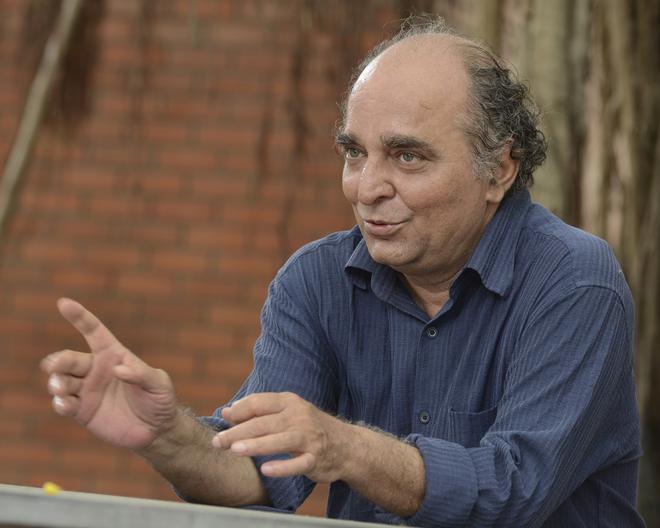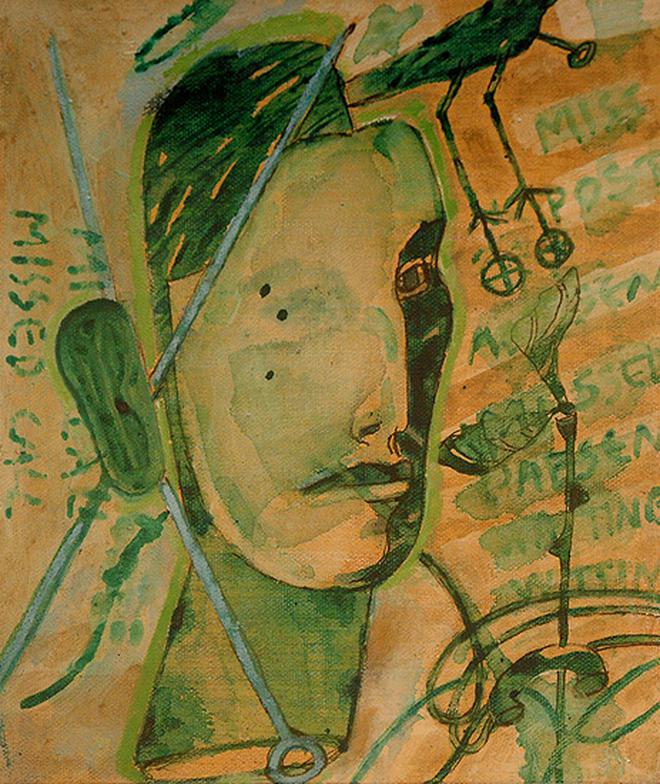In curator Ashvin Rajagopalan’s words: C Douglas is the “quintessential artist”.
Unpredictable, chaotic and layered, his art is but a reflection of the person he is. And so, it comes as no surprise that he refused to speak for this piece. His canvases, however, speak volumes. Displayed at Gallery Veda, with four ceramic companions at Ashvita’s Gallery, the collaborative show is a window into Douglas’ world — a world, though famed, that is rarely on display. It has been more than a decade since Chennai saw a solo show of the veteran’s work.

It is no news that dismembered body parts, fragmented text and layers of mediums dominate his work: the vacuum, hollowness or void, that lie inside of us all, are characters in his artistic expression. And so, though he revels in abstraction, Douglas’ work connects one to the innermost truths of self. A strange, bizarre sense of relatability is quick to wash over the viewers.
For instance, an untitled work from the ‘90s, characterized by different shades of black, gray and blue is crowded with familiar motifs (think: ladders, speech bubbles, angular faces, skeletal hands, all thrown in together). It is discomforting. Perhaps, that is the point. A circular canvas displayed at Gallery Veda takes on a soothing tone, but only in terms of colors. Titled ‘The fountain and the bird song’, the heavily textured work is fraught with mutilated parts of perhaps, a mannequin or stick-like figure.

While Gallery Veda houses 33 paintings of his, the narrative travels further to give a glimpse into his work with four of his ceramic sculptures being showcased at Ashvita’s. These works were done in an artist-in-residency programme at Oisterwijk, the Netherlands, in 1994, along with Indian contemporary artist Bhupen Khakhar.
And Douglas does not fail to reference himself in his sculptures as well. The similarities are unmissable. “Both Bhupen and Douglas are not sculptors, but they were made to use the medium so you can see that he is interpreting his works onto a three-dimensional medium. There may be only one or two more sculptures.” A geometric oil on canvas from 1981, one of Douglas’ earlier works, on display also shows a time when he was experimenting with textures.
Ashvin tries to draw a picture of Douglas’ style of working that one can only describe as ‘in the moment’. “He doesn’t use a traditionally stretched canvas. He uses the canvas, sticks paper on it and crumples the paper, to give this [textural] effect. And then of course, he brings in text. Then there is sand, tea, charcoal, and if he is smoking, cigarette ash...”
The show is on till October 1 at Gallery Veda, Nungambakkam and October 10 at Ashvita’s Gallery, Radhakrishnan Salai.







